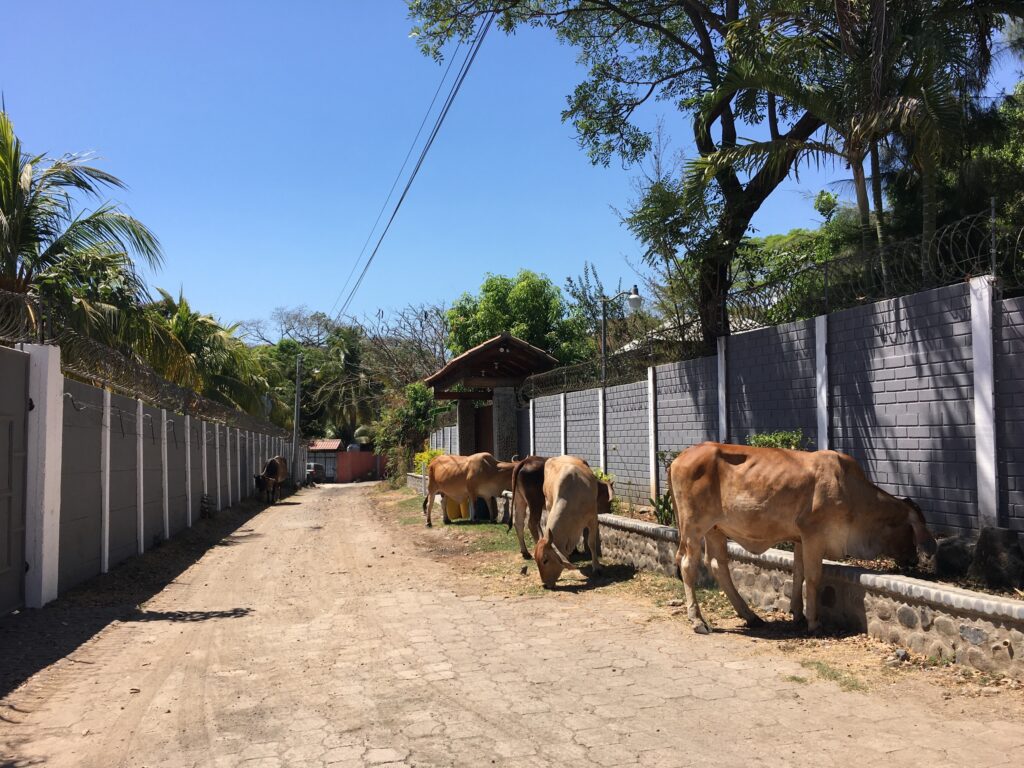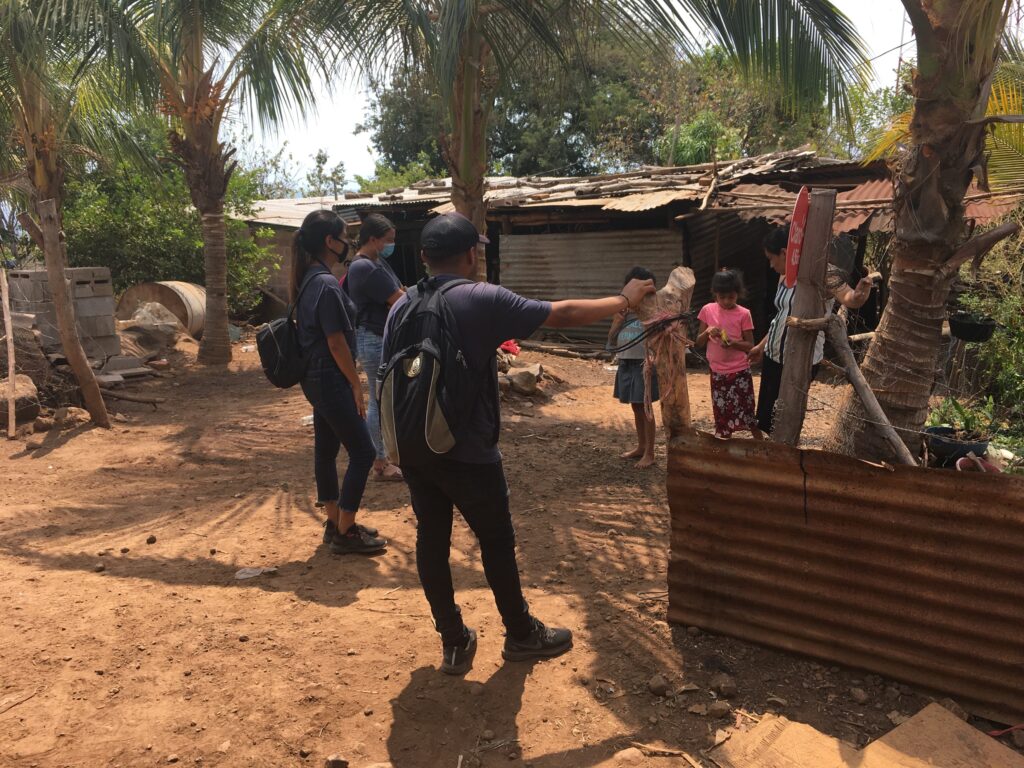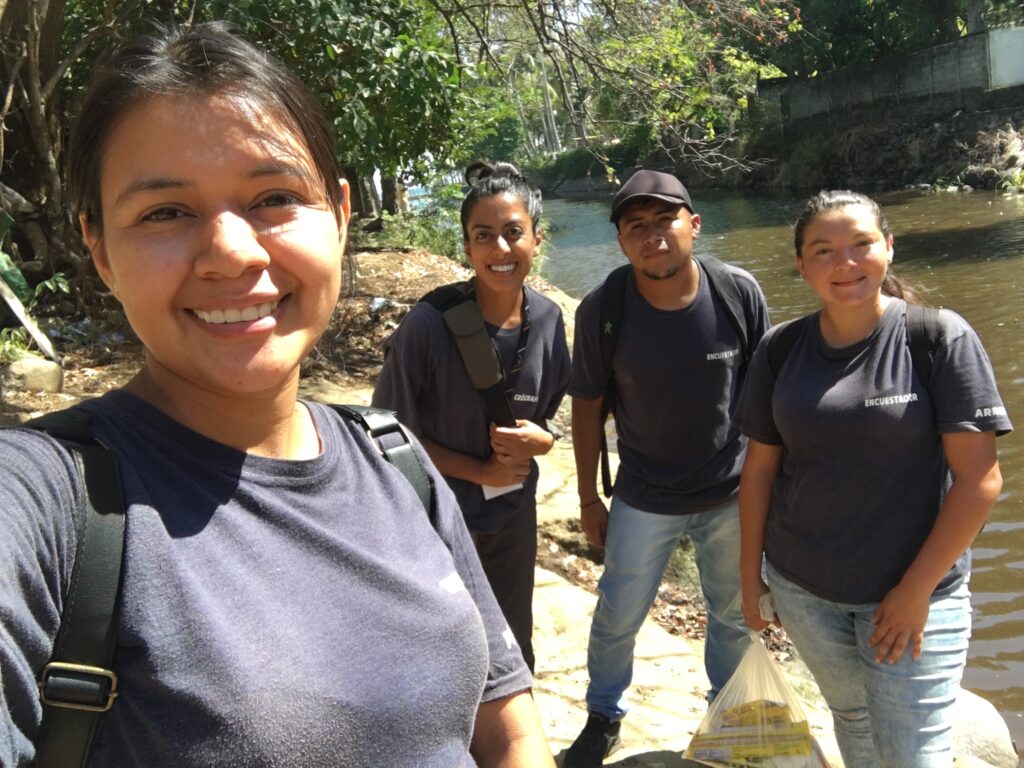Ruchi Patel 2021 Field Report
Nature-based tourism, development, and change on El Salvador’s Bálsamo Coast
Abstract
On the Bálsamo Coast of El Salvador, the rapid growth of nature-based tourism over the last twenty years, specifically beach and surf tourism, has driven large-scale development and landscape change. While tourism has brought novel economic opportunities to many coastal communities, it has also exacerbated existing pressures on local people, land, and biodiversity, as well as given rise to new social-ecological challenges that have not yet been studied. My dissertation research investigates the impacts of nature-based tourism on livelihoods, land access and use, and social equity on the Bálsamo Coast, with particular attention to uneven outcomes for rural poor and historically marginalized populations. Centering on the department of La Libertad, the research uses a combination of interviews, household surveys, participant observation, document analysis, and geospatial techniques to understand how development policies, investment, and other processes of social and environmental change have transformed the Salvadoran coast. In doing so, my research hopes to identify opportunities and barriers to sustainable nature-based tourism development in El Salvador and other coastal tourist landscapes around the world.
Keywords: nature-based tourism, coastal development, livelihoods, land use change, El Salvador
Background
Throughout Central America, nature-based tourism has been a major driver of social-ecological change in coastal landscapes. While purported to benefit local communities, as well as provide opportunities for biodiversity conservation, studies of nature-based tourism have often revealed unintended and uneven consequences for both people and the environment. The impacts of nature-based tourism are perhaps nowhere more salient than along the Bálsamo Coast of El Salvador, where the rapidly growing beach and surf tourism economy has transformed many formerly rustic local beach towns into sprawling, increasingly internationalized resort destinations.
With the expansion of the coastal tourism market, recent development policies, like the Bukele administration’s “Surf City” scheme, and large-scale investment initiatives, such as the US-sponsored FOMILENIO II program and Inter-American Development Bank’s Program for Tourism Development of the Coastal-Marine Zone, have heavily promoted tourism as the economic engine of development for the region. Alongside more traditional streams of finance, the recent arrival of Bitcoin and crypto-tourism in El Salvador has also introduced new forms of development aid, investment, and opportunity. However, tensions between tourism-oriented development, local livelihoods, and historical land tenure and use raise questions about the “sustainability” of development in a region already faced with widespread poverty, inequality, and environmental vulnerability.

My dissertation research draws from critical approaches in environment and development geography to investigate the following three central questions: (RQ1) What are the land use changes associated with tourism development in the Bálsamo region over the last twenty years and their implications for biodiversity conservation? (RQ2) How has nature-based tourism differentially impacted livelihoods, land access, and the distribution of benefits and opportunities in coastal communities, especially for historically poor and marginalized populations? (RQ3) How do both new and old forms of development policy and investment reconfigure or reinforce power relations among stakeholders? To address these questions, the research takes a mixed methods approach consisting of semi-structured interviews, household surveys, participant observation, document analysis, and geospatial analysis of land use change. I focus particularly on the community of El Zonte, a rapidly developing coastal village and surfing hotspot located in the department of La Libertad, nesting this case study within a broader analysis of development policy and social-ecological change across the Bálsamo region.
Field research
The objectives of field research for my dissertation project were: (1) to carry out in-person interviews, surveys, participant observation, and document collection in my study area; (2) to provide research and professional development opportunities for local students; and (3) to strengthen my existing partnerships, as well as identify opportunities to collaborate with other local organizations and entities.
Due to the COVID-19 pandemic, my plans to begin field research in the summer of 2021 were delayed to the fall. However, thanks to the support of CLAG and other funders, I was able to carry out fieldwork successfully from September 2021 to May 2022. During eight months of living in El Salvador, I conducted over 80 semi-structured interviews, of which approximately half were key informants (e.g., local leaders, business owners, park rangers, government officials, journalists, NGOs), and half were community members in my case study site of El Zonte. In addition, I administered a representative survey of 192 households in the case study community. To assist with both surveys and interviews, I hired a team of three Salvadoran university students, who accompanied me in the field and aided in various aspects of data collection and processing. From the many long field days to the pupusas, conversations, and laughs we shared, working with these students was one of the highlights of my fieldwork experience. While in the field, I also conducted extensive document collection through visits to municipal, government, and NGO offices, as well as participation observation in community meetings and activities.


Through the field research process, I developed strong connections with local people, community groups, and other organizations working in the region, which helped to shape and facilitate the research. I also had the opportunity to strengthen my relationship with my partnering organizations, Paso Pacífico and the Fundación Zoológica de El Salvador (FUNZEL), who have supported me throughout the project. Moreover, I was able to develop several new research collaborations, including with the El Salvador program of the Catholic Relief Services (CRS) and the University of El Salvador in San Salvador. These engagements not only enriched my experience in the field, but will also be pivotal in enabling me to share the results of my research with diverse stakeholders.
Use of CLAG funds
CLAG Field Study Award funds were used to hire one of the Salvadoran students on my research team to assist with field interviews, survey implementation, and data processing. These funds were crucial to achieving the scope and objectives of my project. Thank you, CLAG!
Please see the full report for more details.


















